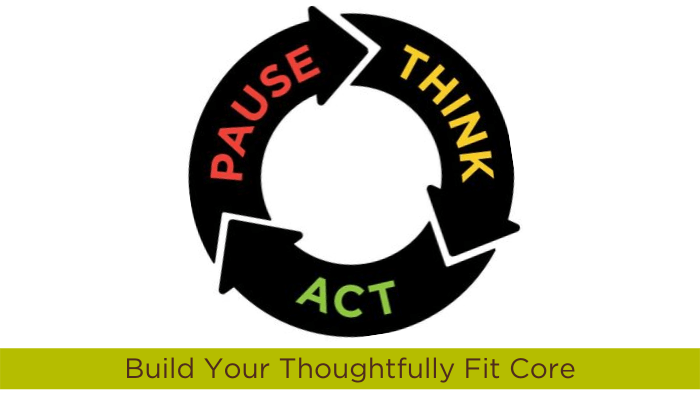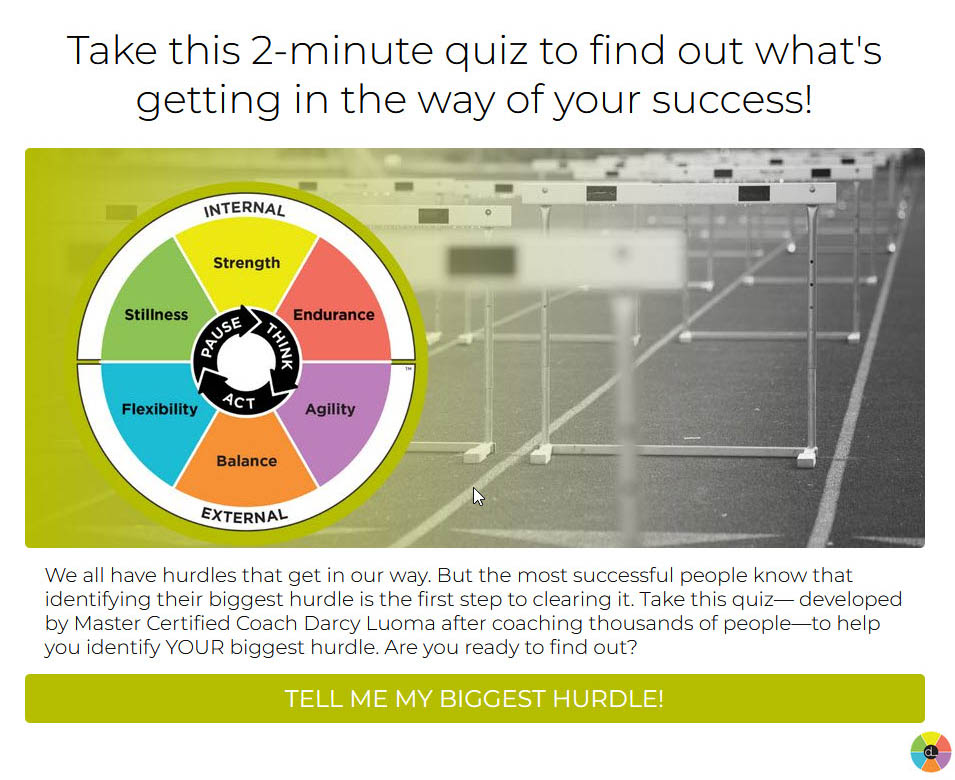I believe that Thoughtfully Fit can make your life easier, and that’s why I try to help people understand how to practice it. Because who doesn’t want an easier life? And while I know that it can be overwhelming to think about all the pieces of Thoughtfully Fit at one time, a lot of what you need most is in the core.
The core of Thoughtfully Fit is just three steps: Pause. Think. Act. It’s a simple enough concept, though definitely not easy in practice. However, if you can remember these three steps, and practice doing them in that order, you’ll be on your way to being Thoughtfully Fit. And when you’re thoughtful in every situation, you won’t have to go back and clean up the mess from overreacting. Trust me, it’s easier to get it right the first time.
Building Emotional Intelligence
At its heart, the core is really about emotional intelligence. When you take time to Pause and Think, you’re building your self-awareness. You will better understand your own emotions, pay closer attention to your behavior, and get curious about the impact you’re having on others.
From there, you can move on to self-management, which allows you to have greater control over your behavior, and Act more thoughtfully.
Emotional intelligence helps you be a better leader, as well as a better colleague, parent, friend and spouse. Building your core allows you to move through the world with greater intention and (ideally) fewer missteps.
Pause.
Think of the pause as a stop sign. You just need a little time to stop, take a look around, and assess the situation before moving forward. In conversations, the pause is generally short, or else things can get super awkward. If someone says something that gets you a little triggered, the pause can just be a breath, or a couple of words that will buy you enough time to gather yourself even a tiny bit. Phrases like “Interesting. Let me take a minute to think about that.” can put a little space in without you just sitting there staring. I also use “Say more”, which puts the ball back in their court for a minute, and might get you a little clarity along with a few seconds to gather your thoughts.
In cases where you’re making a decision or working through a complicated relationship, the pause can be longer. Give yourself permission not to make a snap judgment; take time and make space to find a more thoughtful way forward.
Think.
Once you’ve paused, this is time to ask yourself thoughtful questions and create new awareness. If you are just pausing briefly, it’s a good time to check in on your emotions, and try to identify what you need in this moment. Might also be a good idea to ask yourself if you’re about to say something you’ll need to apologize for later. (Pro tip: If the answer is yes, try to think of something else to say.)
If you are able to take a longer pause, you may want to ask questions like ‘What are my choices here?’ or ‘What outcome am I looking for?’ This is a great way to assess whether a particular course of action is likely to get you closer to those outcomes or not. If the answer is not really, then it’s time for even more thinking on alternatives.
Act.
Just like you don’t sit at a stop sign forever, you aren’t meant to Pause and Think forever either! Armed with your new self-awareness, you’re ready to Act. The goal is to act with intention. This is the self-management part of the equation; consider whether your first reaction is your best one, and try to act in a way that will help you move towards your goal.
Practice Makes Progress
Remember, no one gets it right all the time. I recommend practicing in low-stakes low-stress situations, so you’re ready when the bigger stuff comes at you. Just like building your physical core gives you a strong foundation that makes moving easier, building your Thoughtfully Fit core will make life easier.
Less apologizing, less drama, less energy wasted on things you can’t control. And when you get it wrong, no worries. Just try again next time!
Practice makes progress.


